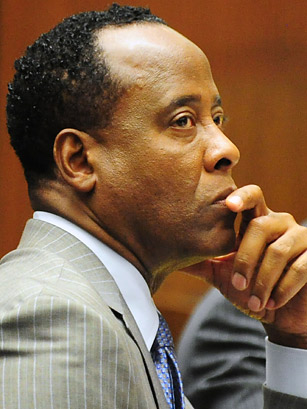
Dr. Conrad Murray waited 82 minutes before calling paramedics when he found Michael Jackson's lifeless body on June 25, 2009. It may have been those minutes that sealed his fate.
The 58-year-old cardiologist was Jackson's personal physician, helping the pop singer prepare for his This Is It comeback tour. To that end, Murray was present up to six days a week to treat Jackson's chronic insomnia. Murray admitted to authorities that he administered a cocktail of drugs to Jackson that fateful evening, culminating with a dose of hospital-grade anesthetic Propofol. He was charged with involuntary manslaughter on February 8, 2010. But it wasn't until this fall that he finally faced a jury.
The trial opened on September 27 to a predictable media circus. Witnesses from doctors to Jackson's bodyguards relived the days surrounding the King of Pop's death. The jury learned that Jackson's kids were in the room as their father died, and that Murray used a number of aliases to procure medications for him. Perhaps the most chilling moment came when the prosecution played a 2-minute audio recording of a slurring, heavily sedated Jackson after receiving a drug injection from Murray. Murray himself didn't take the stand, though he did proclaim his innocence in an MSNBC documentary: "I don't feel guilty because I did not do anything wrong." But Murray's defense — that Jackson administered the fatal dose of Propofol while the doctor was out of the room — didn't sway the jury, which wrapped up the six-week hearing on November 7 when they found Murray guilty of involuntary manslaughter. As the verdict was read, there was a shriek from the gallery, and the crowds cheering the verdict outside were much more raucous. On November 29, Murray was sentenced to four years in prison. He's currently behind bars at the Los Angeles County Jail, in isolation because of his notoriety; but because of credit for good behavior and overcrowding in California's prisons, he may serve fewer than two years. He is also considering an appeal and has requested a public defender, saying he couldn't afford to pay a lawyer himself.